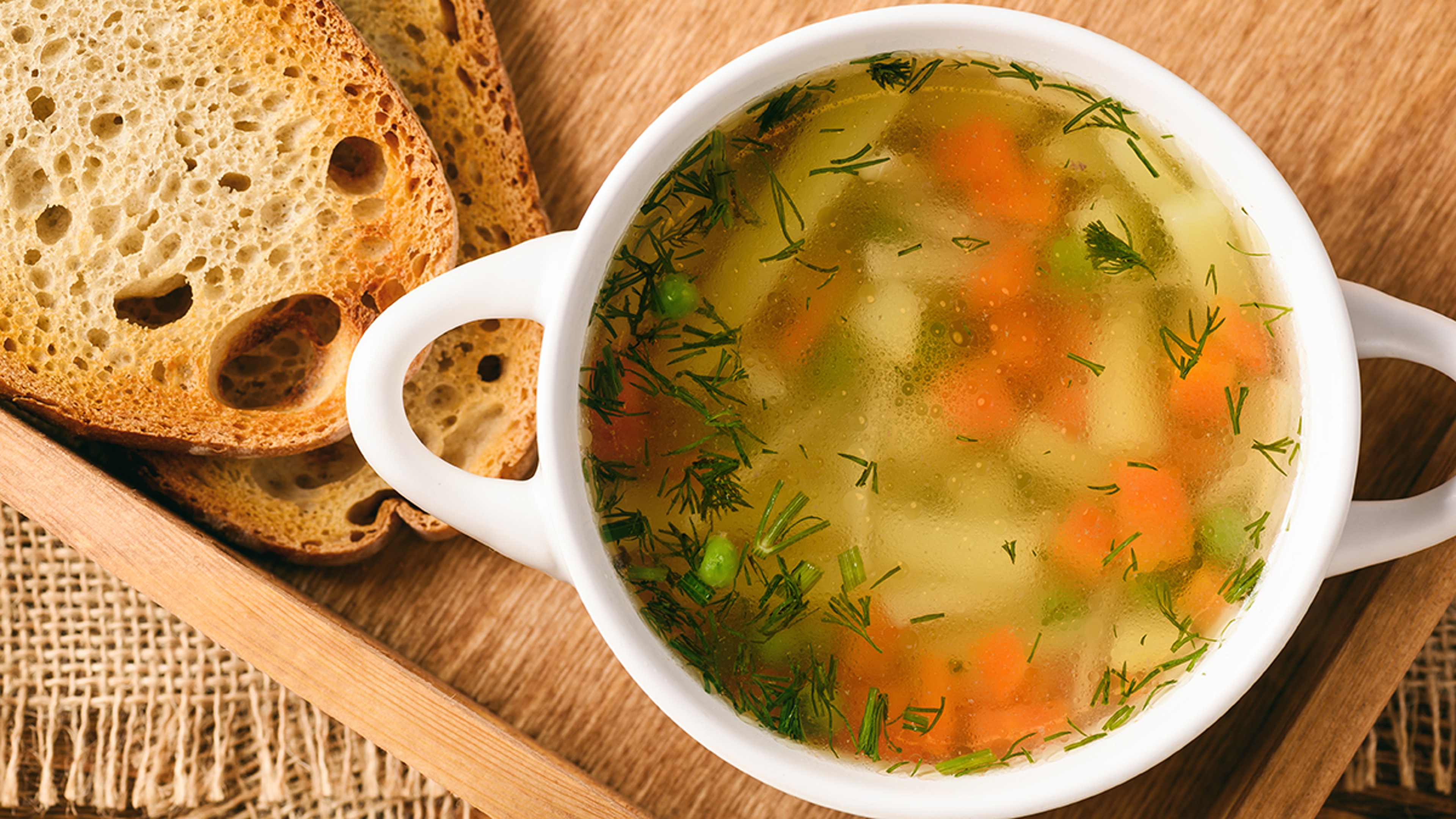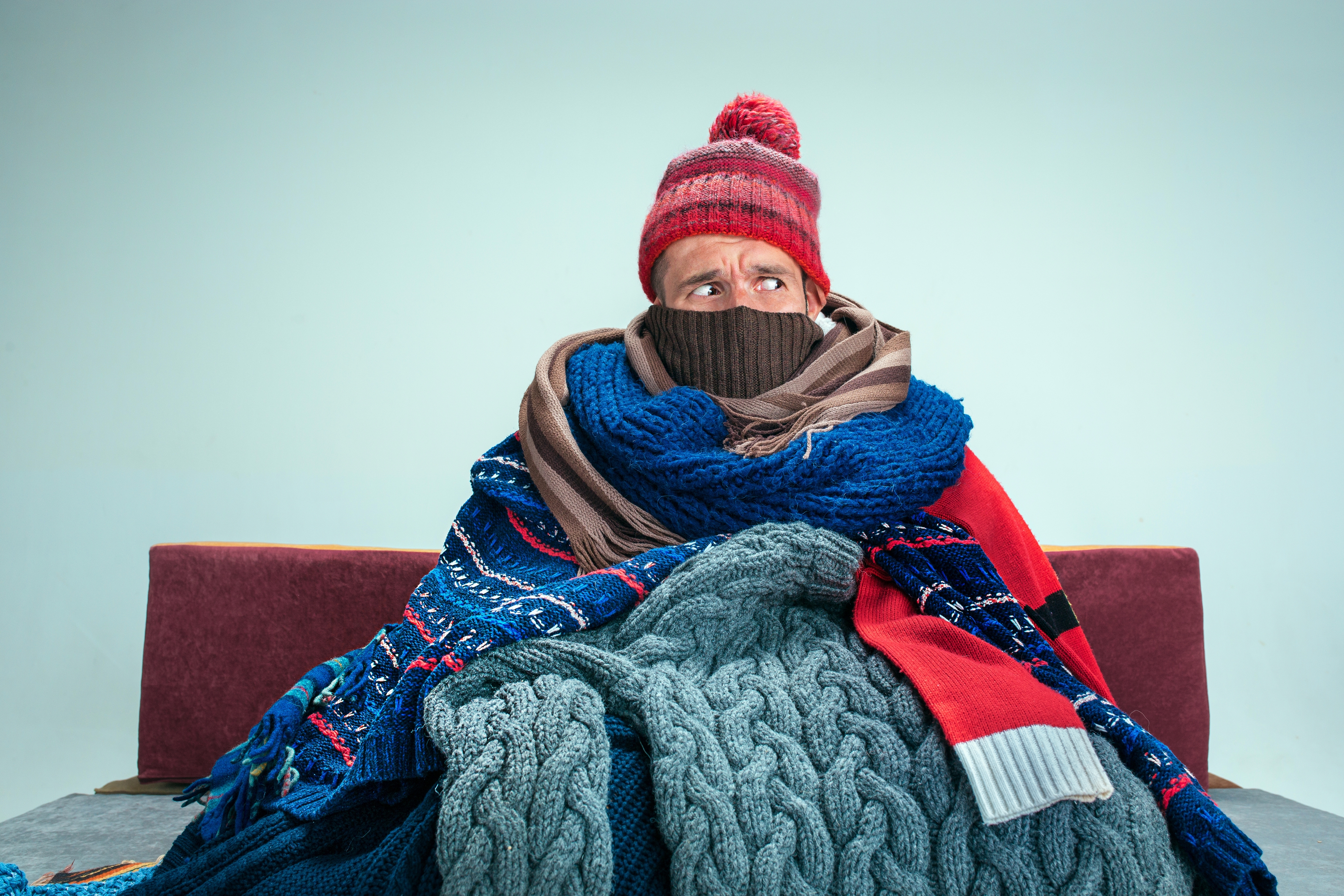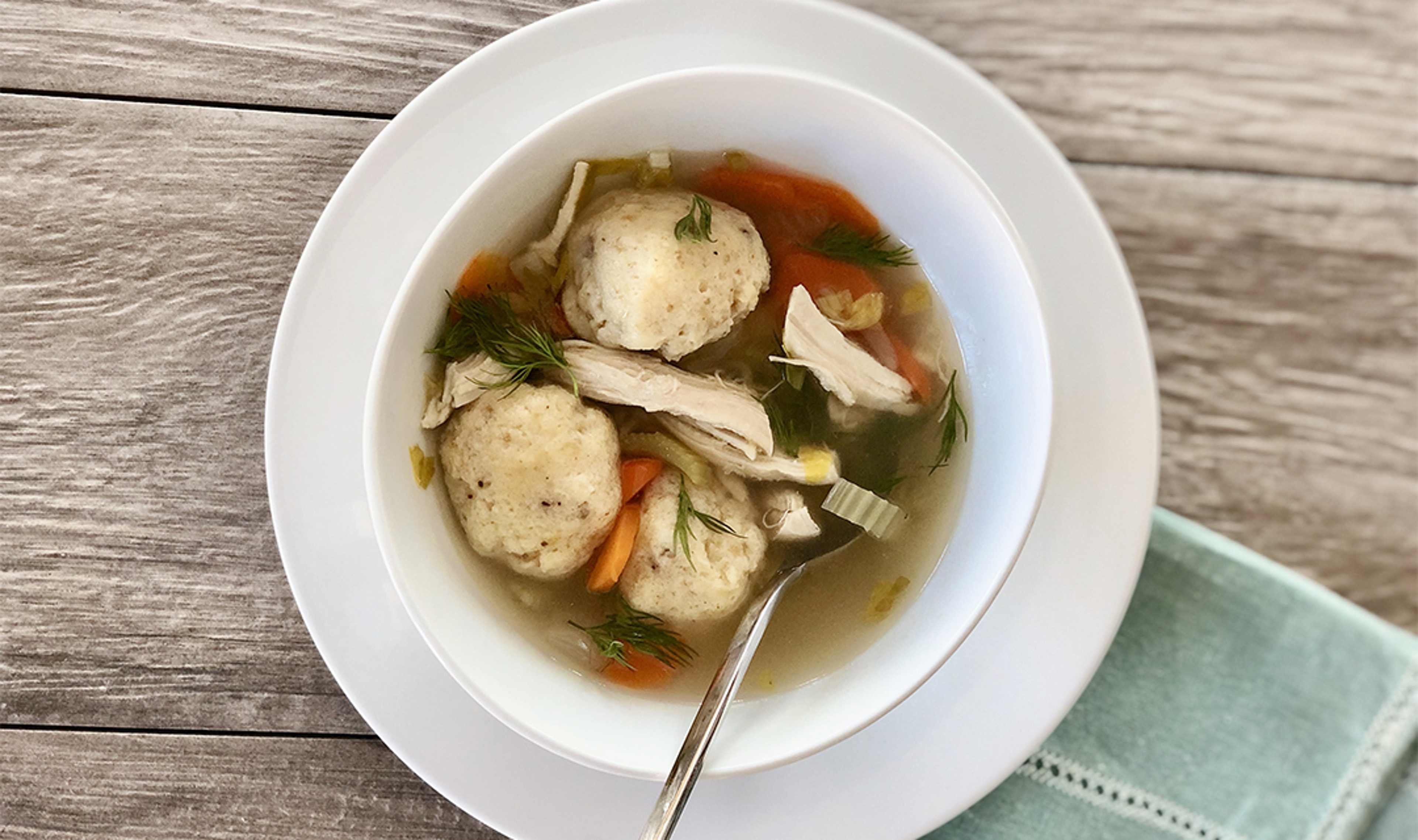Is Chicken Soup Really Good for the Soul?
Legend has it chicken soup has magical powers. We spoke with two experts to dispel the rumors.
Sep 13, 2024
American adults catch an average of two to three colds a year — and at the first sign of sniffles, many reach for chicken soup.
An analysis conducted by Grubhub and ZocDoc found soup deliveries rise in tandem with cold- and flu-related medical appointments. Orders for chicken noodle soup were up 31% when doctor's visits hit their highest point, and chicken rice soup deliveries increased by 42%.
Chicken noodle is Americans' top soup choice to offset chilly weather and the common cold, according to a separate survey, with more than a third (36%) of respondents singling it out as the coziest type. And who doesn't like cozy things?
The notion that chicken soup is a remedy for illness isn't new. Evidence of it being used to address sickness dates back to at least ancient Greece, according to Ken Albala, professor of history at California's University of the Pacific, who has written more than 25 books on food, including his most recent work Noodle Soup: Recipes, Techniques, Obsession.

Members of past civilizations found soup made with chicken fit their treatment criteria, Albala says, essentially serving as a dish that provides nourishment but isn't too taxing to consume.
“It's difficult to digest meat," Albala says. “The darker its color, the more energy it takes. [They were] trying to create a product that's easy to digest and would restore your fluids, and all parts of the body, very easily."
The science supporting soup
Sipping chicken soup when sick, Albala says, became such a common cultural practice over time that cold sufferers today will eat a bowl of it before even thinking about going to a doctor.
“The effects are not very dramatic compared to modern antibiotics and other drugs," he says. “When people get really sick, they don't expect chicken soup to cure them anymore — but it makes us feel good because it's warm and hydrating."
Research suggests consuming chicken soup may truly produce a positive physical effect. A Nebraska Medical Center study found that by inhibiting white blood cell activity its ingredients can help meter an inflammatory response that causes a number of cold symptoms.
Chicken soup's high salt content can help soothe sore throats, too, according to Nancy Mitchell, a registered nurse who's worked for more than three decades as a senior care nurse and director of care, treating patients with respiratory infections and other ailments.
Mitchell says preparing a batch of soup with vegetables like garlic and turmeric, which contain antioxidants and nutrients that can help boost immunity, could also assist with the recovery process.
“Many people grew up [having] chicken soup for a cold, which is why it's such a common remedy," she says. “Chicken soup won't cure your cold, but it may relieve your symptoms."
Gearing up for cold and soup season
In addition to chicken noodle, a hearty chicken chili and other flavors of soup, such as creamy potato corn chowder, can also be therapeutic when you're under the weather.
“Anything you drink that's hot is going to open up your nasal passage — the steam itself will," Albala says.
Convenient packaging formats, such as this Harvest Vegetable with Pasta soup mix that just requires adding water, make preparation easy if you're not feeling well.
Soup isn't the only thing people find soothing when they're sick. Foods that contain ginger, which one study involving throat infections found to have anti-inflammatory properties, and warm beverages can also provide relief.
“Hot tea made with garlic, lemon, and honey is an excellent concoction for relieving flu symptoms," Mitchell says. “[This drink] is packed with antiviral compounds, vitamin C, and other essential antioxidants that help ease pain, reduce congestion, and promote recovery."
This is the time of year when people gravitate to more comforting foods and beverages, according to Mitchell.
“The winter season and lower temperatures bring an increased number of cold cases," she says. “Many of our bodies are just transitioning from two years of tension, and stress is a known factor contributing to weaker immune defenses — so it shouldn't come as a surprise if more people come down with a cold this year."
.svg?q=70&width=384&auto=webp)








